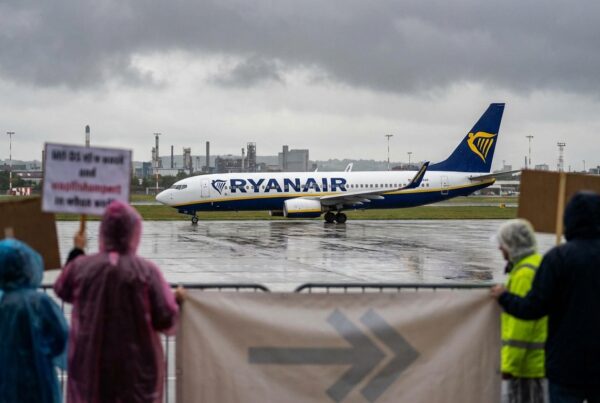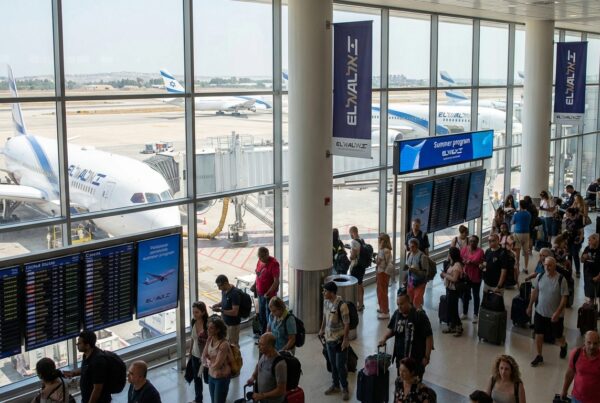At a press conference organized by the CPMEthe Chairman warned of the risks associated with the increase in taxes affecting the sector aerial. He points out that this increased taxation not only threatens the competitiveness of airlines, but also jeopardizes the attractiveness of tourism and the mobility of the population. companies. The demonstration brought together influential voices such as transport and tourism experts, underlining the importance of a coherent strategy. To preserve an ecosystem that is vital to the local economy, industry players are calling on the government to rapidly rethink the taxation applied to aviation. This battle is essential for our economic future.
The Confederation of Small and Medium-sized Enterprises (CPME) recently took a stand against thetax increase on the air transport. At a time when economic, territorial and tourism issues are becoming increasingly crucial, the CPME is playing a key role in defending a strategic sector. At a press conference held in the heart of the La Défense business district, industry representatives voiced their concerns about a tax system that threatens to undermine the entire aviation ecosystem.
A tax system that weakens the aviation ecosystem
Airline executives, understanding the importance of the air transport in the revitalization of regions and the attractiveness of tourism, denounce a heavy tax policy. During the meeting, the President of the CPME stressed that air transport makes a significant contribution to national tourism revenues. He strongly criticized the heavier tax burden, which could not only hinder investment in fleet modernization and the switch to sustainable fuels, but also jeopardize the sector's competitiveness.
To find out more, read this article on opposition to the impending tax hike in the airline industry.
Impact on business mobility
The president of the CPME also highlighted the negative consequences that excessive taxation could have on business. corporate mobility and territorial cohesion. The gradual elimination of certain domestic air routes and restrictive measures concerning business aviation are at the heart of this issue. Indeed, for some regional cities, air travel remains the quickest and most indispensable way of connecting territories. The introduction of overly restrictive taxation could jeopardize this vital link, and directly weaken local economic activity.
Find out more about the challenges of corporate mobility by following this link: catastrophic consequences for the French economy.
Negative impact on the tourism sector
The CPME pointed out that the air transport is a major pillar of the tourism sector, contributing several billion euros to international tourism revenues. The risk of increased taxes is not confined to aviation: it affects the entire ecosystem, including the hotel and catering trade, culture and regional SMEs. Excessive taxation could lead to a decline in air travel, which would be an obstacle to welcoming international visitors and enhancing the value of the region.
To understand the repercussions on tourism, you can consult the call for a tax break in the airline industry.
Towards a common strategy for air transport
Industry players are calling for a genuine strategy for air transport, aimed at reconciling economic development, energy transition and regional attractiveness. They stress that the sector is self-financing and generates substantial revenue for the State, which should encourage the implementation of sustained rather than punitive measures. In-depth reflection and coordination between the various players are essential to ensure that the air transport continues to play a key role in the national economy.
There are many who defend this approach, including analysis of the decline in the french airline industryor with innovative proposals such as those put forward in the Finance Bill for 2026. To find out more about these proposals, visit the government's proposals.

Commitment to Fair Aviation Taxation
| Aspect | Analysis |
|---|---|
| Economic impact | Combating excessive taxation preserves business competitiveness and supports growth. |
| Tourism | A balanced tax system helps maintain tourism receipts and attract visitors. |
| Ecological transition | Investment in sustainable fuels and fleet modernization requires appropriate financial support. |
| Regional mobility | Maintaining efficient air links guarantees business mobility and territorial cohesion. |
| Territorial attractiveness | Competitive air services help to enhance the value of a region and attract local investment. |
| Sector strategy | Defining a clear vision for air transport is essential to support the sector as a whole. |




